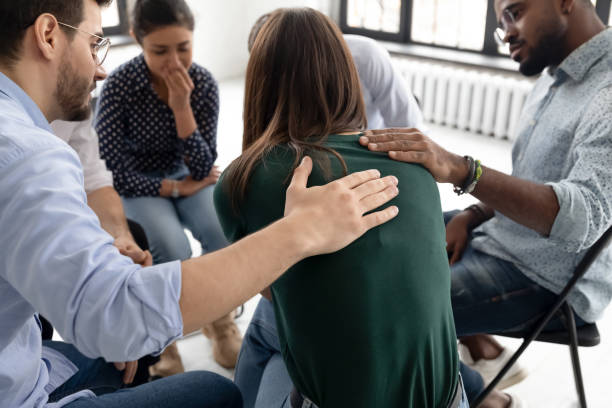
The Journey of Drug Rehab
My 20 years at Solace Treatment Center have been a profound education in the intricate tapestry of recovery. Many of our clients arrive at our Los Angeles facility battered by the relentless storm of addiction, seeking not just relief but transformation. Drug Rehab is never a simple, one-size-fits-all solution; it requires a discerning, personalized approach. At Solace, we prioritize the unique journey of each individual, drawing from a wide array of therapeutic approaches to address opioid, alcohol, and prescription drug addictions.
Every day, I witness a metamorphosis–a testament to human resilience. Our clients engage in diverse programs like Partial Hospitalization and Intensive Outpatient tailored to their recovery stage. It is this customized care that sets a successful Drug Rehab apart from the rest. The key is to create an environment where clients feel understood and supported, where recovery is not just a possibility but an eventuality.
Unveiling Triggers and Co-Occurring Disorders
In the realm of addiction, co-occurring disorders often lurk in the shadows, influencing the trajectory of recovery. It is a notion widely acknowledged in the field that substance abuse seldom exists in a vacuum. Stress, anxiety, depression–these mental health challenges often intertwine with addiction, perpetuating a cycle that Drug Rehab must strive to break. At Solace, we focus on treating these underlying issues through trauma-informed care and comprehensive therapeutic methods.
One of the hardest truths I’ve encountered is that confronting these disorders requires more than just therapeutic prowess; it demands empathy and patience. We encourage our clients to explore the root causes of their addiction and embrace healthier coping mechanisms. This holistic approach not only aids in the cessation of substance abuse but fosters mental resilience. Additionally, offering accessible tools for self-assessment empowers clients to recognize and tackle these challenges head-on.
The road to recovery is never linear; progress is often punctuated by setbacks. However, understanding and addressing co-occurring disorders can significantly diminish these obstacles, paving a clearer path toward sustained recovery.
How Do I Choose the Right Drug Rehab?
Choosing the right Drug Rehab can be an overwhelming task. It requires careful consideration and knowledge of what truly matters in addiction treatment. The first step is to evaluate the types of programs offered. Look for facilities that provide a range of options, such as inpatient and outpatient services, to suit the different stages of recovery. Understanding the accreditation and licensing of the center is equally important; it ensures adherence to the highest standards of care.
- Assess the center’s approach to personalized care. Recovery is not a one-size-fits-all journey.
- Research the range of therapies provided, including individual and group counseling, to ensure comprehensive support.
- Consider the post-rehab support systems available, such as sober living homes and community programs.
- Reach out to the facility. Speaking directly to the staff can offer insights into their dedication and methodology.
What Qualifies as a Drug Rehab Emergency?
A Drug Rehab emergency is any situation where immediate intervention is necessary to prevent severe harm due to substance abuse. Often, these emergencies manifest as acute withdrawal symptoms, overdose, or severe mental health crises like suicidal ideation.
In my experience, it is crucial for families and loved ones to recognize the signs. Rapid intervention can make the difference between a minor setback and a life-altering catastrophe. Facilities like Solace Treatment Center are equipped to handle such crises with empathy and competence, ensuring immediate care and stabilization.
Prevention and education are key. We offer workshops and resources to equip families with the knowledge to identify potential emergencies before they spiral out of control. Remember, in a Drug Rehab emergency, timely action saves lives.
Community and Support in Drug Rehab
Recovery does not happen in isolation; it thrives in community. At Solace Treatment Center, we emphasize the importance of building a robust support network. For those emerging from the shadows of addiction, being surrounded by understanding and compassionate individuals is invaluable.
Our clients benefit from group therapy sessions, where shared experiences forge bonds and foster healing. We also extend our support beyond the confines of our facility, encouraging participation in crucial community activities and meetings like Alcoholics Anonymous. These groups provide both accountability and encouragement, core components in the journey of Drug Rehab.
- 12-Step Programs
- Al-Anon meetings for families
- Peer support groups
The concept of community extends to aftercare programs, enabling clients to maintain connections and continue receiving guidance post-treatment. A successful Drug Rehab program recognizes that recovery is not a destination but a lifelong journey, supported by community engagement and collective resilience.
The Insightful Road Ahead
As an industry expert, I advocate for Drug Rehab approaches that are innovative and forward-thinking. The landscape of addiction treatment is ever-evolving, with breakthroughs in therapy and understanding occurring regularly. At Solace, we stay at the forefront of these developments, providing our clients with the best possible care.
Exploring alternative therapies like mindfulness practices, art therapy, and cognitive behavioral therapy can enhance the traditional methods of treatment. These approaches address the entire spectrum of addiction, including emotional and psychological well-being. Integrating these methodologies allows clients to discover new passions and coping strategies, reinvigorating their pursuit of sobriety.
It’s also essential to recognize the power of personal stories in the recovery narrative. Sharing experiences not only helps individuals process their journey but also inspires others who may be at different stages of their recovery. Through transparency and vulnerability, we reinforce the notion that no one is alone in their struggle.
What are the key factors in selecting a drug rehab facility?
Choosing the right drug rehab facility is a pivotal step in the recovery journey. It’s essential to look for a center that offers a range of treatment options, such as inpatient and outpatient care, to cater to different needs. Also, investigate the facility’s accreditation and licensing, ensuring they adhere to high standards of care. Personalized treatment plans are crucial, so find out if the facility tailors its approach to individual needs. Additionally, consider the support systems available post-rehab, such as community programs and sober living homes. Speaking with the staff can provide insights into their commitment and methodology.
How does one address co-occurring disorders in drug rehab?
Co-occurring disorders often complicate addiction recovery, requiring an integrated treatment approach. At facilities like Solace Treatment Center, addressing mental health issues alongside addiction is prioritized. Utilizing trauma-informed care and comprehensive therapies helps tackle underlying triggers like stress, anxiety, or depression. Encouraging clients to explore root causes and develop healthier coping mechanisms fosters recovery. This holistic strategy not only aids in substance cessation but also enhances mental resilience, creating a solid foundation for long-term recovery. Understanding these intricacies highlights that recovery is rarely straightforward, and setbacks are part of the journey.
What defines a drug rehab emergency?
A drug rehab emergency involves situations requiring immediate intervention to prevent severe harm, like acute withdrawal symptoms or overdose. Recognizing signs like severe mental health crises or suicidal ideation is vital. Families should be educated on these indicators, as timely action can avert life-altering consequences. Facilities equipped to handle such crises ensure immediate care and stabilization. At Solace Treatment Center, we emphasize prevention through public workshops, providing families with the tools to identify and respond to emergencies. Awareness and swift intervention significantly enhance recovery outcomes.
How important is community support in drug rehab?
Community support is crucial in drug rehab, as recovery thrives in supportive environments. Participating in group therapy sessions, like those offered at Solace Treatment Center, allows individuals to share experiences and forge healing bonds. Post-rehab, engagement in community groups such as Alcoholics Anonymous ensures continued accountability and encouragement. This extended support network aids in the transition back into daily life. Programs like 12-Step and Al-Anon, along with peer support groups, play integral roles in maintaining sobriety. The emphasis on community underscores that recovery is a collaborative journey, not a solitary endeavor.
Are innovative therapies effective in drug rehab?
Innovative therapies are increasingly recognized as effective components of drug rehab. Exploring alternative methods like mindfulness practices, art therapy, and cognitive behavioral therapy (CBT) can complement traditional treatments, addressing not just addiction but emotional and psychological well-being. At Solace Treatment Center, we integrate these approaches, allowing clients to explore new passions and coping strategies. By doing so, individuals often find new ways to engage with their recovery process, rejuvenating their journey toward sobriety. The evolving landscape of addiction treatment suggests that staying open to novel methodologies can enhance recovery outcomes.
What steps should be taken after completing drug rehab?
Completing a drug rehab program is a significant milestone, but it’s vital to have a post-rehab plan. Engaging in aftercare programs, such as those offered by Solace Treatment Center, provides continued support and guidance. Maintaining connections with community support groups ensures ongoing accountability and encouragement. It’s also essential to develop a relapse prevention plan, identifying triggers and establishing coping strategies to manage them effectively. Continuing therapy sessions can address ongoing mental health concerns. Remember, recovery is a lifelong process, and staying proactive about mental and emotional well-being is key to long-term success.
How can one prevent relapse after drug rehab?
Preventing relapse involves a combination of strategies and support systems. First, establishing a strong support network post-rehab, such as joining community groups like Alcoholics Anonymous, is crucial. Participating in regular follow-up sessions with therapists can help address triggers. Developing a personalized relapse prevention plan, including recognizing early warning signs and employing coping mechanisms, is vital. Maintaining a healthy lifestyle through diet, exercise, and stress management techniques supports overall well-being. Ultimately, staying engaged with supportive communities and keeping open lines of communication with healthcare professionals enhances resilience against relapse.



